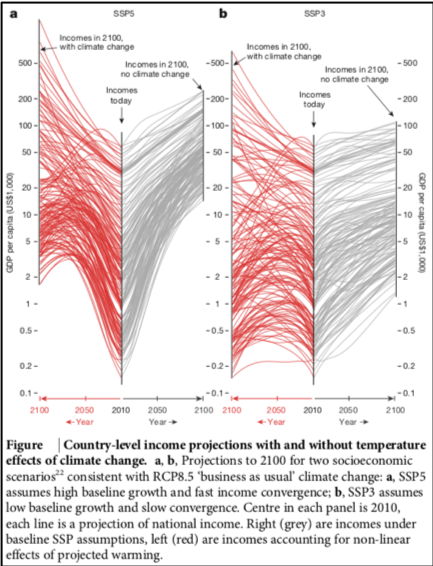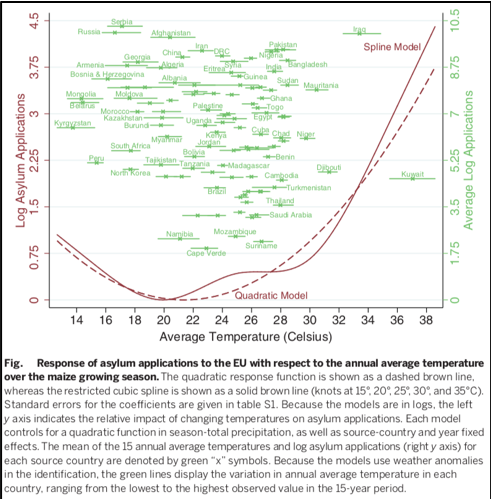In an article in Nature,former SIPA Ph.D. student Solomon Hsiang and co-authors show how temperatures around the globe affect GDP growth. The authors find a remarkably robust relationship for various time periods that is consistent across rich and poor countries: Moderate temperatures are ideal, while temperatures that are too hot or too cold slow economic growth. The authors use the estimated relationship to simulate future GDP growth under a warming climate, which is predicted to increase global inequalities (figure on the left). Each line presents the growth trajectory of a country: grey lines to the right are baseline simulations with no climate change, while red lines to the left incorporate predicted climate change.


